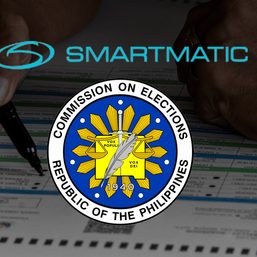SUMMARY
This is AI generated summarization, which may have errors. For context, always refer to the full article.
![[ANALYSIS] Guanzon and the ethics of doing the ‘right thing’](https://www.rappler.com/tachyon/2022/02/ethics-doing-the-right-thing-february-3-2022.jpg)
The public is gripped by the revelations of Commissioner Rowena Guanzon regarding the pending disqualification cases against Ferdinand Marcos Jr. Alleging intentional delay and outside influence, Guanzon has released her separate opinion. The ponente (commissioner in charge of writing the decision), Commissioner Aimee Ferolino, has pushed back, claiming that Guanzon was “pressuring” her.
The incident raises the question of whether Guanzon did right by going public. A concern is the perceived violation of sub judice – a rule that keeps deliberations secret. Some focus on the “harm” the revelation caused to the Comelec’s reputation. And then there are those who (silently) fault Guanzon for breaking “omerta” or the Old Boys’ Club.
It’s useful to keep these in mind while thinking about “how” Guanzon made her disclosures. The ethical dilemma goes all the way back to law school via the classic problem about a red light/don’t cross sign. In the hypothetical, the student is presented with a scenario of whether it is justifiable to break traffic rules if it means doing “the right thing.” The “right thing” can range from picking up trash to saving an old lady. The real point of the exercise is discovering where one draws the line and sees it justifiable to break traffic laws. Invariably, students tend to come to different answers.
Context matters
This lack of consensus leads to the lesson: that laws don’t operate in a vacuum. As a faculty colleague who is an expert in procedural law reminded me the other night: “Context always matters.” In the traffic hypothetical there are different cityscapes, road sizes or perspectives (cyclists vs car owners vs pedestrian).
Can Guanzon’s actions be separated from its context? For example, does insistence on sub judice – a rule against external influence – make sense when the disclosure is about outsiders allegedly interfering in the deliberations? What should a government official do when the “keep it a secret” rule becomes the means to ensure that wrongdoing remains undiscovered?
As observed by Senator Leila de Lima, another context is whistleblowing. Whistleblowing means calling attention to wrongdoing that is occurring within an organization. The Government Accountability Project provides four primary ways to do it: 1. reporting wrongdoing or a violation of the law to the proper authorities; 2. refusing to participate in workplace wrongdoing; 3. testifying in a legal proceeding; 4. leaking evidence of wrongdoing to the media.
Whistleblowing is often studied in relation to ethics because it “represents a person’s understanding, at a deep level, that an action his or her organization is taking is harmful – that it interferes with people’s rights or is unfair or detracts from the common good.”
Everyone celebrates a whistleblower, but silently prays he never has to be one. It’s because whistleblowing involves competing values: fairness and loyalty. In the context of the Comelec issue, this would be fairness of the proceedings, and loyalty to the colleagues and institution (whose reputation will be harmed by the disclosure). Based on the timeline, it seems Guanzon resorted to internal processes first before making the ultimate disclosure.
Whether it’s the NBN-ZTE scandal, PDAF or others, the question seems the same: To what extent does the value of loyalty bind a public official before she can be justified in putting fairness above it?
To conservatives (or institutionalists), it matters that Guanzon tried to avail of internal mechanisms. The divergence of opinion seems to be whether Guanzon should have kept silent if the internal process did not produce the results. Considering the looming elections and what’s at stake, is it the expectation for Guanzon to shrug and say, “Well, I did my best”? Perhaps the more “acceptable” route is for her to fade away, enjoy retirement, and not put her pension in danger.
Risk and retaliation
Whichever side one takes, the undeniable fact is that by going public, Guanzon risks retaliation by powerful people – directly or indirectly. Having been in practice and politics, Guanzon knows this retaliation will come in many forms. One can assume that these risks weighed heavily before she made her decision. Threatened with disbarment, Guanzon appeared unfazed stating she can “plant tubo” or “magdildil ng asin (plant sugarcane or survive merely on salt.)”
The entire incident reveals the harsh reality facing those who seek to do right in government. Even in First World countries where robust whistleblower systems exist, standing up can be a punishing experience. We underestimate the reality that those are threatened by the revelations can ostracize the whistle blower, marginalizing or even forcing them out of office. In a country like ours, these concerns are magnified. Though the late president Benigno Aquino III once pushed a Whistleblower Protection Act, it languished in Congress.
The current system offers almost no practical reason for a public servant to do the right thing. First, it comes at a steep cost. Second, examples like the NBN-ZTE deal and pork barrel scam show that often it’s the whistleblowers who get saddled with suits while the perpetrators not only get away but get reelected into national office. Third, we make impractical moral and legal impositions on those who choose to persist. Even physical security is a concern. We keep looking for public servants willing to stand up. Yet we demand too much without offering anything in return. – Rappler.com
John Molo handles commercial litigation and arbitration. He has argued several landmark cases before the Supreme Court. He teaches Constitutional Law at UP, where he chairs the Faculty’s Political Law Cluster. He is the editor-in-chief of the IBP Journal and a trustee of the Philippine Bar Association.
Add a comment
How does this make you feel?
![[WATCH] In The Public Square with John Nery: Preloaded elections?](https://www.rappler.com/tachyon/2023/04/In-the-Public-Square-LS-SQ.jpg?resize=257%2C257&crop=414px%2C0px%2C1080px%2C1080px)
![[Newspoint] 19 million reasons](https://www.rappler.com/tachyon/2022/12/Newspoint-19-million-reasons-December-31-2022.jpg?resize=257%2C257&crop=181px%2C0px%2C900px%2C900px)

![[OPINION] The long revolution: Voices from the ground](https://www.rappler.com/tachyon/2022/06/Long-revolution-June-30-2022.jpg?resize=257%2C257&crop=239px%2C0px%2C720px%2C720px)
![[OPINION] I was called a ‘terrorist supporter’ while observing the Philippine elections](https://www.rappler.com/tachyon/2022/06/RT-poster-blurred.jpeg?resize=257%2C257&crop_strategy=attention)


![[New School] Tama na kayo](https://www.rappler.com/tachyon/2024/02/new-school-tama-na-kayo-feb-6-2024.jpg?resize=257%2C257&crop=290px%2C0px%2C720px%2C720px)
![[Only IN Hollywood] After a thousand cuts, and so it begins for Ramona Diaz and Maria Ressa](https://www.rappler.com/tachyon/2024/02/Leni-18.jpg?resize=257%2C257&crop=262px%2C0px%2C720px%2C720px)






There are no comments yet. Add your comment to start the conversation.